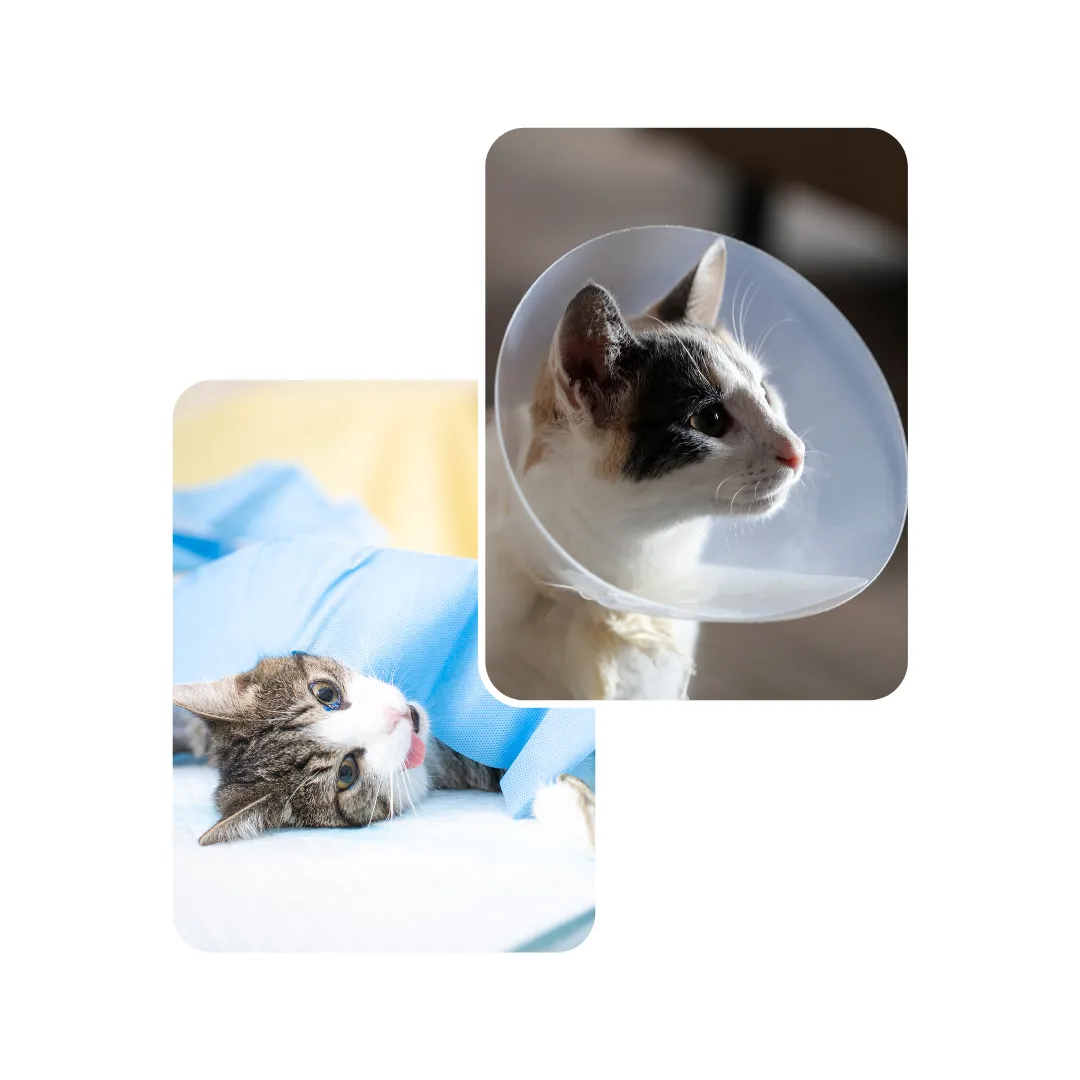
Cats reproduce quickly, and one unneutered cat can lead to many unwanted kittens. Male cats that are not neutered often show aggressive behavior, urine spraying and a strong urge to roam. Female cats that are not spayed go into heat regularly, which can cause loud vocalizing and attract male cats. Beyond behavior, unneutered cats face higher risks of infections, uterine problems, and cancers. Cat neuter solves these issues by removing the reproductive organs safely and effectively.

Unneutered males may constantly roam, yowl or fight other cats to find a mate. Unspayed females go into heat every few weeks, becoming restless, vocal, and trying to escape.
Hormones in unneutered cats can make males more aggressive, leading to fights with other cats. This often results in scratches, abscesses and higher vet bills.
Unspayed females show repeated cycles of pacing, rolling, loud meowing and rubbing against objects. These cycles can be stressful for both the cat and the owner.
Male cats commonly spray strong-smelling urine to mark territory. This behavior is one of the main reasons owners choose neutering, as it often stops after the surgery.
Unspayed females in heat attract male cats from far away, sometimes causing noisy fights outside your home.
Unneutered females are at risk of life-threatening uterine infections and mammary cancer, while unneutered males face testicular cancer and prostate issues. Neutering greatly reduces these risks.
Cat neutering is a surgical procedure that removes a cat’s ability to reproduce. It can be done for both males (castration) and females (spaying).
Neutering prevents unwanted kittens, reduces aggressive behavior, stops spraying, and lowers the risk of serious diseases. It also helps control the stray cat population.
Most cats can be neutered from around 5 to 6 months of age. In some cases, vets may recommend earlier or later depending on the cat’s health.
Yes, it is one of the most common and safest surgeries performed in veterinary care. With proper monitoring and aftercare, complications are very rare.
Most cats recover quickly within 7–10 days. They may need to wear a cone to prevent licking the stitches.
Cat neutering reduces mating behaviors like roaming and spraying, but your cat’s overall personality and affection will remain the same.
Simply click the Appointment button on our website or call us directly. Online booking saves you time and ensures your cat gets.
Your pet deserves expert care – Subscribe now for trusted tips and updates from our pet experts.
